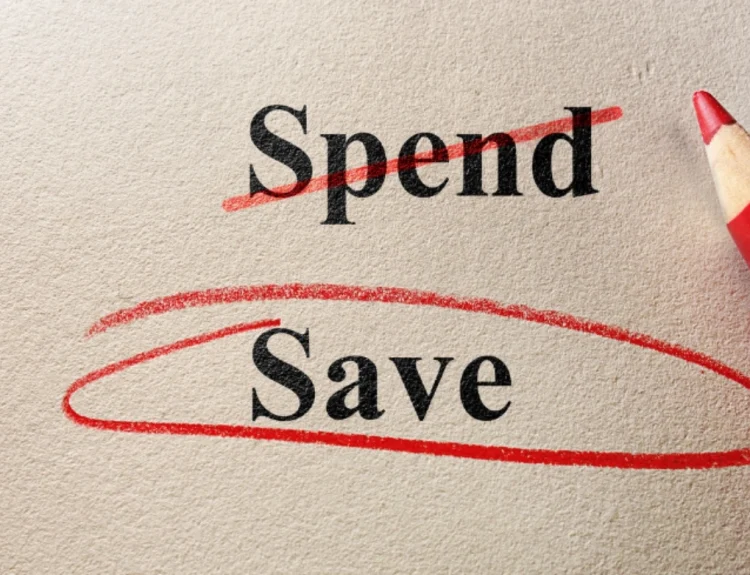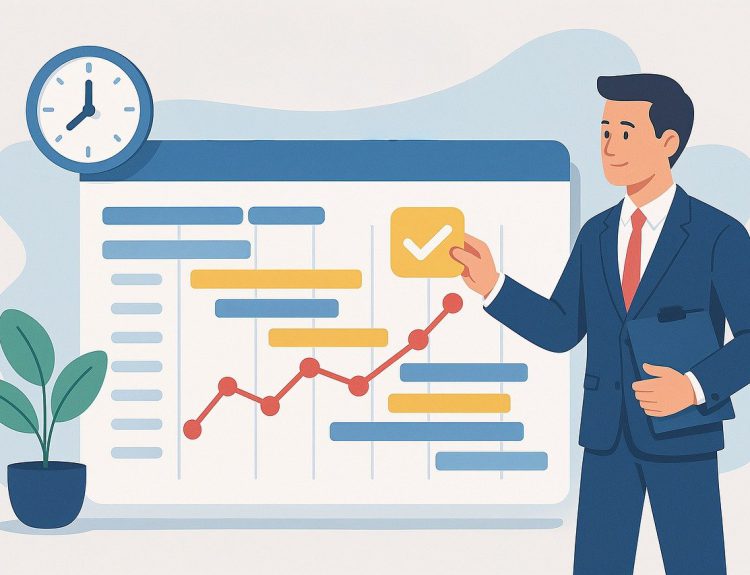Credit and debt can feel like a heavy backpack you are carrying on an uphill trail that you cannot rest anywhere. When you have to pay heavy interest on the amount, while your credit card balances just constantly mount, it is a real struggle not only on your finances but on your mental health, too.
On top of that, when you share your financial problem and want suggestions about debt and credit management with anyone, hearing just ideal suggestions that seem out of place in your everyday life is even more overwhelming. So, practical and relatable advice about debt management is something that everyone wants when they are facing a crisis due to credit and debt. So, let’s go through this article to control your finances, reduce stress, and make smarter money decisions, all while managing debt.
Know Your Debts and Track Progress
Before you manage your debt and credit, you should know what you owe. So, the first thing you need to do is list out your debts and track the progress of how you are paying them. This step will help you provide an overall idea of where you stand in terms of debt. This will give you clarity and help you stay organized to plan how to manage debt.
List Debts with Balances, Interest, and Due Dates
So, you will take the first step of debt management by making a detailed list of all your debts. Not only do you have to list out your debts, but you should keep a record of their respective interest rates and amounts, and even the payment due dates of each debt. Your debt list can include all types of debt, such as credit cards, mortgage loans, education loans, etc. Making the list of all debts will give you an understanding of how much you owe and which debts should be prioritized for payment.
Use Tools (spreadsheets, apps, calculators) to Track Progress
While listing the debt, you should act smartly. When you are doing all this stuff on your own, it can be time-consuming and a hassle. So, make sure to use various leverage tools like spreadsheets, budgeting apps, calculators, etc. Using these tools will not only help you monitor your credit management progress but also accurately visualize such progress. In this way, your debt management can be an organized and manageable process rather than an overwhelming task.
Choose a Debt Payoff Strategy That Works for You
A debt payoff strategy that works for you may not work for others. So, you need to make a reasonable debt payoff strategy according to your debt and credit situation. Some of the useful strategies that you can use are:
-
Debt Avalanche (Highest Interest First)
So, what really is debt avalanche? In this strategy, what you will do is pay off all the high-interest-rate debt initially by paying the minimum amount on other debts. Once such high-interest debt is paid off, you can move on to other debt. If you are someone who is struggling with high-interest debt, this strategy might work well for you. Likewise, if you are someone who is easily motivated by saving money and disciplined enough to make little extra payments in case of extra earnings, this strategy can be a great credit management option.
-
Debt Snowball (Smallest Balance First)
This is another effective debt reduction strategy. In this method, what you will do is pay the minimum amount on all the debts except the smallest debt. You will put all the money on the smallest debt. Once you pay off that debt, you will move on to another small debt, and in that way, you can be fully debt-free.
-
Always Pay Minimums, Apply Extra to Target Debt
This is the golden rule that every person who is in credit management should follow. This rule suggests that you should pay the minimum amount on every debt, no matter which debt payoff strategy you choose. This will not only help you avoid penalties and late fees but also improve your credit score. Also, this method suggests you put extra money on your target debt so that it pays off fast.
Create a Realistic Budget and Cut Expenses
Having a budget with the appropriate structure monitors the revenues and expenses and allows for locating the opportunities to reduce discretionary spending, such as restaurants or subscriptions. The 50-30-20 rule is another handy rule: 50 percent needs, 30 percent wants, 20 percent savings and debt repayment. Hence, the budgets you prepare must be practical and ought to be re-examined on a regular basis to accommodate any changes in revenue or costs.
-
Review Income vs. Expenses
To pay off the debt, it requires money. For money, you need to have income. So, you should first track both your income and expenses. This will help you study your income and how you are spending such income. Also, it will help you determine any surplus amount, if any, to foster fast debt payment.
-
Start Small — Cut Non-essential Spending Gradually
When you think about credit management, you have to understand that you cannot make it happen overnight. You should start with small steps. After reviewing your income and expenses, you will have an idea bout your necessary expenses and unnecessary expenses. Then you can initially slowly cut down on the unnecessary expenses like subscription services, dining out, etc. This will not make any big change in your lifestyle, but also help you save money.
-
Reward Small Wins to Stay Motivated
Rewarding yourself even in the small wins can be great motivation. You can reward yourself for small wins like sticking with the routine, paying off the smallest debt, etc, to stay motivated.
Avoid Adding New Debt
When you are on debt management and you continuously add on new debts, then you will never be debt-free and work in a loop of paying off debt and putting on new debt. So, you need to stop adding new debt.
-
Stop Credit Card Use While Paying Down
Credit cards are easy access, but over time, the amount can mount and become a huge debt. So, you need to stop using a credit card. Once you start using cash or banking, it will help you understand how much you are actually spending, reminding you about the debt you owe before spending.
-
Remove Temptation (Cut Up or Freeze Cards)
When you have a credit card in your purse, that can be a strong temptation to use it. So, what you can do is freeze your credit card and remove temptation. By doing this, you can stop reckless spending and stick with your credit management plan.
Consider Debt Consolidation or Management Help
-
Debt Consolidation Loans
Debt consolidation is the way to simplify your debt repayment process. In this process, your several loans or debts will be combined to make a new debt, to secure a low interest rate and save money on interest. This will also help to reduce monthly payments and streamline the repayment process.
-
Credit Counseling and Debt Management Plan
To help with your credit management strategy, you can opt for professional help from a credit counselor. These certified people will study your finances and advise you about various debt management plans. They will also guide you in making various payment plans.
-
Pros and Cons of Professional Help
Everything comes with its pros and cons. Seeking professional help also has its positive and negative impacts. While the professional help will make a plan tailored to your situation but it involves various setup and service fees, which can be expensive. It really doesn’t have a negative impact or credit score, but these agencies may not about the participation on your credit report, which can be viewed unfavorably by some lenders.
Build an Emergency Fund
When you are looking forward to reducing debt, you should build and maintain an emergency fund. This will act as a safety net for any unforeseeable expenses that may arise along the way of debt management.
-
Why Does Even a Small Fund (E.g., $1,000) Matter
When you are building your emergency fund, you do not have to set aside a huge sum in one go. You can set aside a small amount that doesn’t make a huge difference.
-
Avoiding New Debt From Emergencies
In case of unexpected expenses, this money will be available, stopping you from relying on a credit card or using money that you set aside for paying off debt.
Be Patient and Stay Consistent
-
Debt Payoff = Long-term Process
Debt payoff is not going to happen overnight. You need to understand that it’s a long-term process that depends on your amount of debt, repayment strategy, and income. It can take months to years, so you need to have patience and avoid unnecessary stress.
-
Track Milestones and Celebrate Wins
Your debt and credit management strategy and debt payoff are absolutely trackable and measurable. So, you need to track the milestones or goals that you have set clearly earlier in this process. Only tracking your milestones doesn’t help; you should celebrate those milestones to stay motivated, even if that’s a small win. You don’t have to throw a big party, further increasing your debt. You can just reward yourself small thing, or even an act of acknowledgement can be considered a celebration.
-
Learn From Setbacks
You will face different setbacks in this process, such as being unable to pay an extra amount, increasing debt, or even missing payments. Instead of feeling disappointed by these setbacks and failures, you should learn from them. You should analyze how you are facing such setbacks and try to manage them.
Conclusion
Hence, effective debt and credit management requires a lot of persistence and commitment. You should plan accordingly, stick to it, and learn from the setbacks to be debt-free and have a good credit score. It may feel weird, but you can obtain some practical credit management tips and financial planning tips from sources like Reddit from people who are facing the same problem. Furthermore, do not hesitate to seek help from financial advisors, support groups, or trusted online communities. You should try taking steps, even if that’s a small step, first to be financially secure and debt-free



